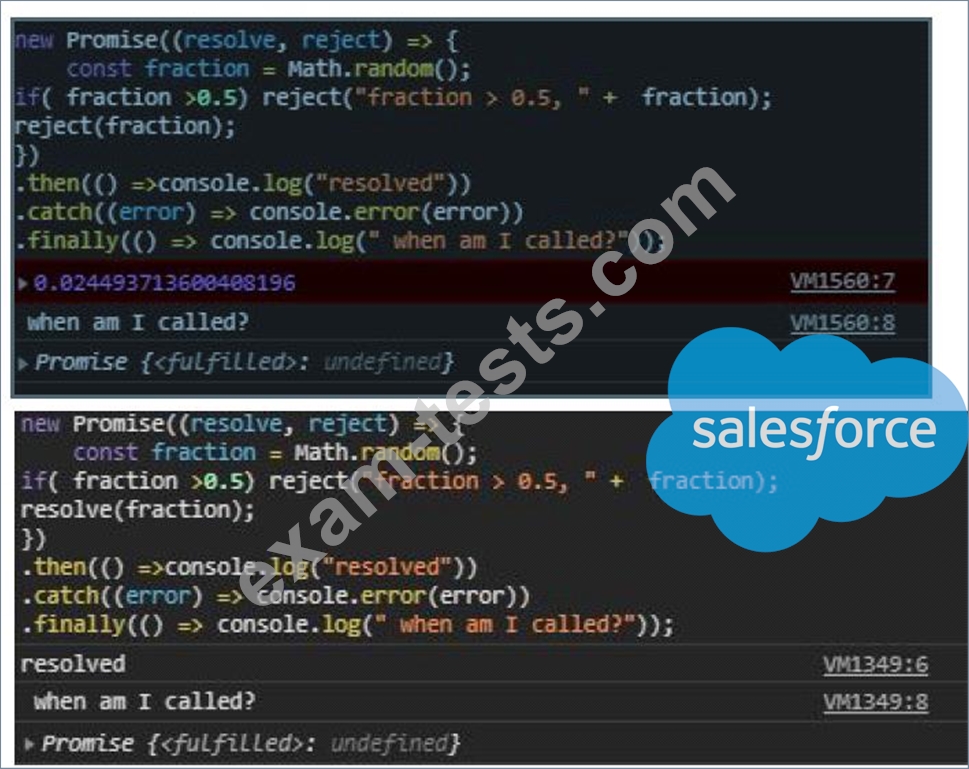Question 86
A developer is creating a simple webpage with a button. When a user clicks this button
for the first time, a message is displayed.
The developer wrote the JavaScript code below, but something is missing. The
message gets displayed every time a user clicks the button, instead of just the first time.
01 function listen(event) {
02 alert ( 'Hey! I am John Doe') ;
03 button.addEventListener ('click', listen);
Which two code lines make this code work as required?
Choose 2 answers
for the first time, a message is displayed.
The developer wrote the JavaScript code below, but something is missing. The
message gets displayed every time a user clicks the button, instead of just the first time.
01 function listen(event) {
02 alert ( 'Hey! I am John Doe') ;
03 button.addEventListener ('click', listen);
Which two code lines make this code work as required?
Choose 2 answers
Question 87
developer has a web server running with Node.js. The command to start the web
server is node server,js. The web server started having latency issues. Instead of a one second
turn around for web requests, the developer now sees a five second turnaround,
Which command can the web developer run to see what the module is doing during the
latency period?
server is node server,js. The web server started having latency issues. Instead of a one second
turn around for web requests, the developer now sees a five second turnaround,
Which command can the web developer run to see what the module is doing during the
latency period?
Question 88
The developer wants to test the array shown:
const arr = Array(5).fill(0)
Which two tests are the most accurate for this array ?
Choose 2 answers:
const arr = Array(5).fill(0)
Which two tests are the most accurate for this array ?
Choose 2 answers:
Question 89
Refer to the code below:
new Promise((resolve, reject) => {
const fraction = Math.random();
if( fraction >0.5) reject("fraction > 0.5, " + fraction);
resolve(fraction);
})
.then(() =>console.log("resolved"))
.catch((error) => console.error(error))
.finally(() => console.log(" when am I called?"));

When does Promise.finally on line 08 get called?
new Promise((resolve, reject) => {
const fraction = Math.random();
if( fraction >0.5) reject("fraction > 0.5, " + fraction);
resolve(fraction);
})
.then(() =>console.log("resolved"))
.catch((error) => console.error(error))
.finally(() => console.log(" when am I called?"));

When does Promise.finally on line 08 get called?
Question 90
Refer to the code below:
Const myFunction = arr => {
Return arr.reduce((result, current) =>{
Return result = current;
}, 10};
}
What is the output of this function when called with an empty array ?
Const myFunction = arr => {
Return arr.reduce((result, current) =>{
Return result = current;
}, 10};
}
What is the output of this function when called with an empty array ?

